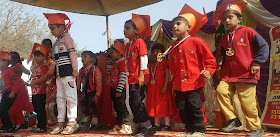Those who support the idea that the human brain learns everything and inherits nothing, argue that different societies all over the world show widely differing behaviour patterns. They argue that, since we all belong to the same species, this must mean that men everywhere are learning to behave rather than following some fixed set of genetic instructions.
Those who support the idea that man is pre-programmed to a large extent argue that cultures are not as different as they seem. If you look for differences you will find them, but if you look for similarities you will find plenty of those too. Up to now we have tended to notice the differences and overlook the similarities. It is rather like a tourist visiting a foreign country. He notices what is Unfamiliar but ignores what is familiar.
So, we have two conflicting view. Since no one is arguing about the fact that we do learn a great deal during our lives, the argument must concentrate on those particular action s which are claimed to be inborn.
New-born babies perform many similar actions – feeding actions for example. They have had no time to learn such actions. This would suggest that such actions must be inborn. But what about actions that appears later on, when there has been enough time for learning to have taken place – actions like smiling and frowning? Does the child copy these from its mother, or are they also inborn? Only a child that has never seen its mother can provide the answer to this question. If we look at children who are born blind and dear, we find that they do indeed show smiling and frowning at appropriate moments in their daily lives.
So, it would seem that these actions also must be inborn. But what about adult behaviour patterns? Here, even those who are born blind cannot help us to solve the problem because by this stage, they will have learned to communicate by deaf-and-dumb sign language and they will have learnt to feel expressions on faces with their fingers, so we cannot say that their actions must be inborn.
The only method left to support the idea that an adult action is inborn is to demonstrate that it occurs in every human society, regardless of varying culture pressures. Do all people, everywhere, stamp their feet when they are angry, or bare their teeth when they are enraged, or flick their eyebrows up and down when they greet a friend?
Some research workers have found and studied remote tribes in an attempt to answer this question and they have found that even Amazonian Indians who have never net people from outside their area do indeed perform many small actions precisely as we do. If remote tribesmen flash their eyebrows in greeting like we do, and like everyone else does, can we be sure that this means the reactions must be “built-in” to our brains before birth?
The answer is that we cannot be certain. we should not all learn to behave in the same way. It seems unlikely but it cannot be ruled out. So the argument is, for the moment, inconclusive.

